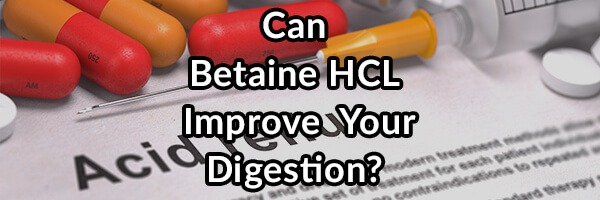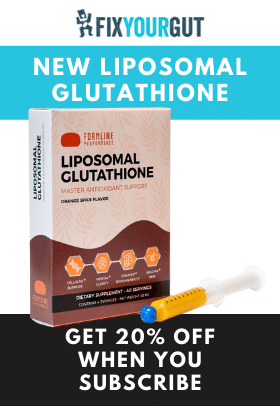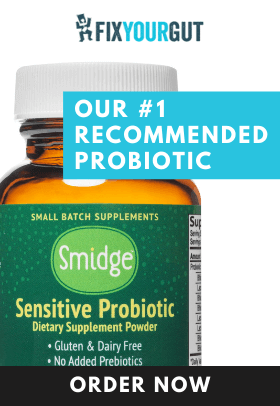Betaine HCL, Will It Improve Your Digestion, GERD, or LPR?
One of the many causes of reflux disorders appears to occur from having an elevated stomach pH. I know that is counter to everything you have heard from mainstream medicine. Most people are told that they have too much stomach acid, which causes reflux disorders like GERD and LPR. You see advertisements all the time on television for acid-reducing medications, including antacids and proton pump inhibitors (PPI’s). You have probably seen the television commercials with Larry The Cable Guy telling you if you take a PPI you can eat a million hot dogs, guzzle gallons of soda, ride four wheelers, and not suffer from any reflux. Betaine HCL supplementation improves reflux symptoms for most people compared to PPI use, yet PPI’s are advertised everywhere.
The primary cause of most reflux disorders is not from increased stomach acid production but instead occurs from elevated abdominal pressure. Elevated abdominal pressure weakens the lower esophageal sphincter (LES) and forces gastric contents more frequently into the esophagus and if the upper esophageal sphincter (UES) is weakened as well into the larynx and oral cavity. Upper gut dysbiosis and small intestinal bacterial overgrowth (SIBO) causes increased fermentation causing gas production, which will lead to bloating and increased abdominal pressure. Hiatal hernia’s and abdominal adhesion’s from surgeries can also weaken the LES from improper gastrointestinal alignment and lead to increased abdominal pressure causing reflux disorders. Generally, throughout the day, we occasionally reflux, from occasional natural esophageal pressure changes, swallowing, belching, bending over, and laughing loudly. That being said for most people, our esophagus can easily handle occasional reflux episodes and inflammation. For others, they cannot, and they develop reflux conditions, including GERD or LPR. There might be differences in the types of reflux materials which can lead to different reflux disorders which I have covered in the following linked Fix Your Gut YouTube video.1
So How Does Elevated Stomach pH Cause Reflux Disorders Including GERD and LPR?
Our stomach is meant to have an acidic environment. Increased stomach pH facilitates dysbiosis, bloating, improper stomach emptying (in severe cases gastroparesis), and protein fermentation and malabsorption. All of these listed issues from increased stomach pH increases abdominal pressure and causes the stomach to become displaced, which can lead to an hiatal hernia putting further pressure on the esophagus and LES. The increase in abdominal pressure primarily gastric pressure weakens the LES and causes reflux disorders including GERD and LPR.2 3
Stomach acid is produced by our stomach to lower the stomach pH to help limit pathogen overgrowth, digest protein, activate digestive enzymes, signal an increase in mucin production in the stomach to protect from gastritis, and facilitate proper absorption of vitamin B12 later within our gastrointestinal tract (intrinsic factor). So when we do not produce enough stomach acid or the stomach acid we produce is neutralized, what happens to our digestion?4 5 6
When you have a consistently elevated stomach pH microorganism dysbiosis occurs leading to further digestive issues. Our stomach is not sterile. However, a majority of the bacteria that live in our stomach including probiotic bacteria like Lactobacillus tend to be able to survive and thrive in acidic environments. Our stomach has a lower amount of microbes that live in it compared to other parts of our body because of the lower pH, exposure to enzymes, and constant exposure to oxygen. Most of the opportunistic bacteria that cause upper gut digestive issues have to be able to neutralize stomach acid and increase stomach pH to survive. Bacteria including H. pylori, for example, produce the enzyme urease to metabolize urea which is found minute amounts in stomach chyme, to produce carbon dioxide and ammonium ions which neutralize stomach acid and increase stomach pH. H. pylori cannot thrive in an acidic environment, and when one’s stomach pH is normal (between two to four at resting, one to three when eating), it tends to become dormant within biofilm within the mucosal barrier of the stomach. However, when your stomach pH is elevated, H. pylori becomes active, propagates, causing dysbiosis, which produces toxins depending on the strain that induces inflammation, reflux, gastritis, and ulcers. Maldigested protein in the stomach from an elevated stomach pH negatively influences the microbiome of the stomach as well. Maldigested protein leads to increased fermentation and possible dysbiosis producing excessive amounts of hydrogen gas, causing distension, esophageal pressure changes, and LES weakness. Upper gut bacteria are also able to use glucose from food ingestion for propagation and increase hydrogen production leading to gas, bloating, and increased abdominal pressure. A hiatal hernia may eventually develop from worsening abdominal pressure and increase further pressure on the LES and esophagus. The increased pressure would further weaken the LES and worsen GERD.7 8 9 10
Dysbiosis in the stomach and esophagus may lead to reduced probiotic Akkermansia muciniphila colonization, in the upper gut, which combined with increased stomach pH result in a reduction of mucosal barrier health in the stomach and esophagus. Increased endotoxin production from Gram-negative overgrowth can increase inflammation in the stomach, causing gastritis, and increase inflammation in the esophagus, causing the symptoms of reflux. The esophagus is also able to produce limited quantities of bicarbonate (using carbonic anhydrase) to protect itself from reflux; its capacity is reduced if repeated reflux events are occurring. The worsening combination of increased inflammation (endogenous cytokines and chemical injury) from constant refluxing (due to increased gastric pressure) into the esophagus, reduction of mucosal integrity, and endotoxin inflammation cause the symptoms of reflux from excessive esophageal inflammation.11 12 13 14 15 16 17
All of these issues occur from increased stomach pH. Most people with reflux and stomach disorders are then prescribed PPI’s which reduce stomach acid production further decreasing stomach pH (the higher reflux pH of the stomach chyme for a time, the less chemical injury to the esophagus). For a while, inflammation in the esophagus and stomach is reduced from a reduction of the pH of reflux. Dysbiosis worsens over time from elevated stomach pH and eventually, from increased inflammation (induced from continued reflux containing pepsin and endotoxins), reflux symptoms occur again, for some stronger than ever, and the cycle repeats itself. The PPI dosage is increased, symptoms abate, then later return worse than ever until the PPI’s dose is maxed out. A truly vicious cycle.
Betaine HCL, Does it Improve Digestion?
Maybe, there is not a lot of diagnostic information available that taking betaine HCL to reduce stomach pH and increase stomach acid production, but we do have promise. We do have an excellent study that measures gastric re-acidification using betaine HCL to try to improve the absorption of certain medications that require proper stomach acid for the breakdown. Prior studies have shown that absorption of certain drugs depends on a lower stomach pH, which explains why some medications like ketoconazole or antibiotics are recommended not to be taken with antacids. In a prior study, people taking the PPI omeprazole were given Coca-cola (pH of 2.5) and ketoconazole to see if it would increase absorption of the medication, which it did.18
In the study, volunteers were given the PPI rabeprazole for five days, and their gastric pH was monitored throughout the study using Heidelberg pH capsules. The pH of the stomach was more alkaline in most of the volunteers who took the PPI for five days. When the volunteers in the study took 1,500 mg of betaine HCL, their stomach pH decreased to around one for more than an hour with no noted side effects. In people with healthy digestion, this level of stomach pH frequently occurs when we ingest our meals. Also, it did appear that at least short term use of betaine HCL does not create a negative feedback loop of decreased gastrin production leading to reduced production of stomach acid, marked by standard blood gastrin tests results during the study. 19
In people with low stomach acid levels, the use of betaine HCL in the short term can help decrease stomach pH, reduce the overgrowth of opportunistic bacteria, and improve protein and food digestion. It is still best (until we get more data on long term gastric acid negative feedback loop and betaine HCL use) to trigger endogenous stomach acid production by supplementing with bitter herbs like gentian and ingesting enough pure salt (chloride is used to make HCL). If you have ulcers or severe gastritis supplementation with betaine HCL should be done with caution to prevent worsening of symptoms. Finally, in people with H. pylori, dysbiosis increasing stomach pH may cause severe inflammation from increased endotoxin and ammonia production from H. pylori and increased burrowing of the bacteria into the mucosal barrier. Use with caution in systemic stomach overgrowth, or if you have ulcers/gastritis. Supplementation with zinc carnosine to help repair the stomach mucosa, l-carnitine (supplement with l-ornithine instead if you are suffering from hypothyroidism) to detoxify ammonia, and activated charcoal to bind endotoxins may relieve these issues.20 21 22 23
Betaine HCL Protocol
The protocol for taking betaine HCL is simple and can improve your digestion. Start with two capsules taken during a meal. If you get severe gastritis or stomach pain, stop immediately! If your heartburn is worse, continue to increase the dose by one capsule every day for a week to see if it improves; if not, discontinue the betaine HCL. Increase the dosage of betaine HCL with every meal that contains protein (use betaine HCL only with meals that contain protein, if you are eating a salad do not supplement with and instead add some organic apple cider vinegar to your salad if it does not worsen your reflux [acid ingestion should be limited in people with silent reflux]) by one capsule until your digestion improves. Your stools should become dark brown if they are not, your stool should become better formed, you should have less indigestion, and your stomach should not be as bloated if the betaine HCL is helping. After a few days reduce the amount of betaine HCL taken with each meal to see if your stomach is producing more acid. Upper gut dysbiosis can produce ammonia which can increase stomach pH and decrease acid production. Lowering the pH of the stomach during meals with betaine HCL for a time can reduce ammonia producing dysbiosis, allowing your stomach pH to return to normal levels. Take one capsule less each meal and see if your digestion worsens, if not, continue decreasing the dosage. Never take more than fourteen capsules in one meal, which doses that high of betaine HCL has been known to cause side effects like gastritis. If you get gastritis or pain, consume 1/2 teaspoon of baking soda mixed well in a glass of filtered water to buffer the stomach pH for relief. Wait a few minutes after you have mixed the baking soda in water for the bubbles to dissipate before consuming to prevent ingesting excess gas. Consult with your gastroenterologist. Your stomach should be able to handle the small doses of HCL in the supplement, if it cannot, work on fixing your stomach lining.
Premier Labs betaine hcl without pepsin is the brand I recommend. If you cannot order it, consider using Doctor’s Best betaine HCL with pepsin and gentian.
If you are suffering from dysphagia make sure that you use betaine HCL with caution. You would not want one of the capsules to become “stuck” in your throat or esophagus, dissolving, and burning the lining causing pill esophagitis. Make sure you take the betaine HCL with filtered water and make sure you completely swallow the capsules to prevent this from happening as well.
Pepsin is an enzyme used by the stomach to digest protein. Pepsinogen activates and converts into the enzyme pepsin in the presence of stomach acid. Pepsin helps break down protein into amino acids the body can absorb and then becomes inactivated. When mixed with bicarbonate released from the pancreas in the small intestine, it turns back into pepsinogen. This transformation protects the rest of the intestinal system from pepsin and stomach acid. If you have silent reflux, pepsin is your main issue, and you want to avoid supplements with the enzyme. Some people also have adverse reactions to porcine derived pepsin but can tolerate betaine HCL without it.24 25
Lower stomach pH will ensure that your stomach microbiome is balanced and your overall digestion improves!
- http://www.ncbi.nlm.nih.gov/pubmed/19191069 ↩
- http://www.ncbi.nlm.nih.gov/pubmed/19191069 ↩
- https://chriskresser.com/more-evidence-to-support-the-theory-that-gerd-is-caused-by-bacterial-overgrowth/ ↩
- Beers, Mark. The Merck Manual, Merck Research Laboratories, 2006. ↩
- Smith, Margaret, Morton, Dion. The Digestive System: Systems of the Body Series, Churchill Livingstone, November 18, 2011. ↩
- http://www.ncbi.nlm.nih.gov/pubmed/1775933 ↩
- http://onlinelibrary.wiley.com/doi/10.1002/mnfr.201100542/abstract ↩
- Beers, Mark. The Merck Manual, Merck Research Laboratories, 2006. ↩
- Smith, Margaret, Morton, Dion. The Digestive System: Systems of the Body Series, Churchill Livingstone, November 18, 2011. ↩
- http://www.ncbi.nlm.nih.gov/pmc/articles/PMC4000497/ ↩
- https://www.google.com/url?sa=t&rct=j&q=&esrc=s&source=web&cd=6&cad=rja&uact=8&ved=0ahUKEwiMi7HAsInNAhVE5SYKHeTiC84QFgiIATAF&url=http%3A%2F%2Fwww.ncbi.nlm.nih.gov%2Fpubmed%2F26100928&usg=AFQjCNHwDrV9jg-pkf-9V5-3xRNjSWd5Ew&sig2=LMZOEA5OYPL2ibKqew6YEg ↩
- http://www.pnas.org/content/110/22/9066.full ↩
- http://aem.asm.org/content/74/5/1646.full ↩
- http://www.hindawi.com/journals/ijoto/2012/646901/ ↩
- http://www.nature.com/gimo/contents/pt1/full/gimo15.html ↩
- http://www.voiceinstituteofnewyork.com/the-potential-use-of-pepsin-and-carbonic-anhydrase-isoenzyme-iii-ca-iii-as-diagnostic-markers-for-laryngopharyngeal-reflux-disease/ ↩
- http://jama.jamanetwork.com/article.aspx?articleid=2521970 ↩
- http://www.ncbi.nlm.nih.gov/pmc/articles/PMC3946491/ ↩
- http://www.ncbi.nlm.nih.gov/pmc/articles/PMC3946491/ ↩
- http://www.christopherhobbs.com/library/articles-on-herbs-and-health/gentian-a-bitter-pill-to-swallow/ ↩
- http://www.sciencedirect.com/science/article/pii/S0024320506005753 ↩
- http://www.ncbi.nlm.nih.gov/pmc/articles/PMC1297603/ ↩
- http://www.ncbi.nlm.nih.gov/pubmed/3719924 ↩
- Beers, Mark. The Merck Manual, Merck Research Laboratories, 2006. ↩
- Smith, Margaret, Morton, Dion. The Digestive System: Systems of the Body Series, Churchill Livingstone, November 18, 2011. ↩







which one is best for silent acid reflux Betaine HCL /Pepsin or Zinc L Carnosine
thanks
Hi,
I have Silent Reflux. Irritated throat, sometimes difficult to swallow, bloated, a cough. There seems to be some confusion on your blog whether Silent Reflux sufferers should or should not use Betaine HCL with or without Pepsin. Can you please confirm.
Thanks
Thank you for this detailed article. I have a question; I’m hypothyroid & have had Mold illness so assume my stomach acid is low. However I have gastritis & just discovered EPI. I started taking digestive enzymes with HCL+Pepsin in them but my upper symptoms got worse, & my bloating & gas (my worst symptoms!) have not improved. Do you think I should stick to enzymes without added HCL+Pepsin, or continue with these? My Doctor is no help so would love your input. Thank you!
thank you for this article! i have lpr and took hcl with pepsin (250 mg) one and was spitting out yellow bile the following morning. my gi map shows dsybiosis, and leaky gut , but good enzyme production- and I am hoping to understand, do i need to heal the gut first, tackle the dsybiosis, then tackle the low acid or am I doing this in the wrong order? should I increase the acid, which will get rid of the dysbiosis, then would subsequently heal the gut? ive been on a low acid diet for over a year, cut gluten and dairy. im sick of chicken and potatoes
I’ve found great digestive relief from using Betaine HCL, but for some reason was always under the impression that it was bad to take Betaine HCL without Pepsin. While my digestion has improved greatly I often get a globus sensation in my throat. After reading this article it sounds like it could be due to the Pepsin in the Betaine that is causing the problem. I just ordered some Betaine without Pepsin to give it a try, but my question is if in fact the silent reflux / globus sensation I’m experiencing is due to excess Pepsin is there any way to acutely reduce or flush out the extra pepsin in order to relieve the symptoms.
Yes watch this for LPR: https://www.youtube.com/watch?v=DKaxduSxQnI
Thank yo for all this helpful advice and insight.
I need to avoid Pepsin due to silent reflux. My Betaine pills contain Veg Peptase instead of Pepsin. Is that safe or should I avoid this too?
Thanks in advance.
Thank yo for all this helpful advice and insight.
I need to avoid Pepsin to to silent reflux. My Betaine pills contain Peptase, is that OK to take or should I avoid this too?
Thanks in advance.
Hey John
Ive tried betaine HCL for my silent reflux but it hasn’t really improved. I recently started a low thiol diet because I tested positive for hydrogen based SIBO, and I noticed my flatulence smells like rotten eggs. My gi map also shows massive dysbiosis, with both gram negative and gram positive bacteria. Do you think my silent reflux will improve as my sibo and dysbiosis improves?
I don’t know where to start but..
Scored high in IgA, so lots of allergy to pollen, mostly raw foods, etc.
Tried the GAPS diet for almost 1 year, cod liver oil, bone broth etc, betaine with pepsin (up to 6 capsules)..
But still having lots of burping with nausea before and after eating, even when I woke up every time.. tried zinc l carnosine with pepzin, b12 / D, negative on h bacteria pylori, sauerkraut juice before meals for 2 weeks, no MTHFR detected, no thryoid problems.. What’s left to check it out John?
Sounds like some sort of Gram-negative upper gut dysbiosis other than Pylori that would still thrive on a protein rich diet like GAPS that produces histamine. Maybe yeast and parasites as secondary dysbiosis.
Hey John, I know this is off topic, but do you have any idea if someone who reacted negatively to lactoferrin (with a lot of fatigue) would tolerate colostrum? I understand colostrum has at least a small amount of lactoferrin in it. You said you were thinking of writing an article on colostrum, is that correct? Thanks a bunch if you get around to answering this
Hi John, i have bloating and burping immediately after eating and silent reflux. I have tried Betaine hcl. It did reduce the reflux in the night but it increased the burping and gastritis hence i had to stop. Any suggestions? Meanwhile whether the new product Praxid is good ? ( it contains all major components in one)
Hi.I unfortunately used ppi medicines before and my hair started to fall out after several months. I also tested positive for pylori, I’m thinning all over my head now even thought no one in my family has ever been bald.. but the worst thing is that the same thing is now happening to my girlfriend. I don’t know what to do, do I have sibo or upper gi overgrowth? What do I need to do:(
Why are you recommending one betaine HCL WITHOUT pepsin (Premier Labs) and one WITH pepsin (Dr’s Best)?
I am 110 lbs and have good diet no stomach issues I have cut out all acidic foods. I do take HCL, I only have burning throat and feeling like lump in my throat for 7 months now. What else can I do to stop this uncomfortable feeling. I do take baking soda and stop eating 3 hours before bed. Thanks for your help Kathy
Since you have to drink a lot of water to swallow several HCL capsules, aren’t you disabling the very function (stomach secretions) you are trying to fix by diluting your stomach juices with all that water during a meal? Plus swallowing several capsules in succession could be problematic for people with swallowing problems or esophageal problems.
It could yes, in those cases taking digestive bitters may work out better.
Hello , thank you for this article !
I have GERD,gastritis C and hiatal hernia (and a celiac), so I have all the reasons to believe I have low stomach acid .
Few days ago I started to take buffered ascorbic acid in dosage of 1.5 gram a day . It took me only one day and I had a diarrhea for 24 hours .
So clearly my stomach tolerance for ascorbic acid is very low . Would you assume this could be because of the low stomach acid ? or is it the gastritis ? and should I expect same results with betaine-hcl ?
And by the way – why not to use ascorbic acid instead of be betaine-hcl to treat low stomach acid ?
And another question please : do you think vitamin b3 in high dosage can worse low stomach acid state ?
I don’t have Helicobacter pylori.
It sounds like the vitamin C triggered an osmotic effect in the intestinal tract. No, I do not see how niacin would reduce stomach acid production or increase stomach pH?
Hi John,
Can you share what you know about the Betain HCL and sulfur connection? There is some talk to avoid the supplement if you sulfur metabolism issues. Is this because you digest proteins better which in turn increases sulfur sensitivity in the duodenum and small intestine or the actual supplement itself? I have improved stools but some of my sulfur issues are slowly returning just wondering what your thoughts are. Thanks!
Dave
Are you eating more protein now since you can digest it better?
Hi, Thanks for the information. I’ve been successfully using Betaine HCL for some time now, but as of recently have been experiencing indigestion, heart burn, and bloating for unknown reasons. My Doctor wants me to start Zantac. What are your thoughts on this? I’m concerned that Zantac and Betaine HCL could have adverse reactions with each other?
Zantac and betaine HCL would cancel each other out since zantac would increase stomach Ph and betaine HCL would lower it. I would not take them both at the same time. I would recommend talking to your doctor about taking betaine HCL during meals and zantac in the afternoon away from food and before bed if really needed, where the pH of the stomach is naturally higher.
Great info, thank you! I would love to hear why some people, especially those with silent reflux, react negatively to pepsin…? Thank you!
https://fixyourgut.com/silent-reflux-lerd-a-digestive-condition-that-mimics-other-health-issues/
Hello! Why is it that you recommend the premier research labs hcl product? It’s more expensive, just wanted to check before I purchased!
Lack of pepsin, that most people react negatively to. Especially if you have silent reflux.
Hello, what would you call short term for this HCL protocol? 3 months? 6 months? And when starting a SIBO protocol (SIBO-c) is it okay to do these at the same time? thank you
2-3 months, yes it should be fine to do both at the same time. Of course ask your healthcare professional.
Hi! I have what I think is Silent Reflux (LPR). My stomach doesn’t appear to have enough stomach acid. I came to this conclusion after taking the “Baking Soda Test”. I drank 1/4 tsp of baking soda, mixed in a glass of water first thing in the morning. I never burped for over an hour & I tried this 2x.
I started drinking 1 tbsp of apple cider vinegar in a glass of warm water 30 mins before each meal. I’ve been doing this for 5 days. This has drastically helped me with my symptoms: less coughing in general (especially after meals), less mucus in my throat, food is getting easier to swallow, less burping, sleeping better.
My acupuncturist is putting me on a 6 week “Balancing Digestion Protocol” tomorrow, which I believe includes HCL. You mentioned that this enzyme should be avoided if you have Silent Reflux. Is this correct? I’m not sure if I read what you said properly.
Thank you!
Betaine hcl, can be fine by itself, but the pepsin in most Betaine supplements is what can be an issue. You do not want to reflux, extra pepsin.
Is there any reason that Betaine would cause me to be extremely bloated and gassy? I never get any burning from it but I seem to get really horrible sulfur smelling gas and bloating when I take it
I just found out seeking health has hcl without pepsin.
Great recommendation, thank you!
Hi, my name is Crystal and I’ve been bloated and gassy for the last year or so. I’ve had every study done GI studies, colonoscopy’s done, every gas x everything probiotic and I”m at a loss now. I do know the food moves through my digestive system slow…I need to know is there anything out here in this world to get this gas and bloating out…Please help :)
Maybe try triphala, Squatty potty, proper magnesium supplementation (see my magnesium blogs), moderate exercise, Perfect Health Diet, and proper hydration to help move things along which may help relieve your bloating and gas.
Is there any way to swallow betaine hcl without having to swallow whole capsules or tablets? I have to open capsules or cut tablets up into small pieces. Can’t swallow them whole.
No, it would irritate the mouth and upper esophageal tissue and if you aspirated it, it would severely harm your lings.
Could you further clarify your stance on pepsin? How to tell if we need it? I feel bloated and gassy after meals but I don’t feel like i have heart burn or chest pain or acid reflux.
Pepsin is an enzyme that the stomach releases to help with protein digestion. It becomes active when it comes it contact with something that has a low pH, like stomach acid for example. It is inactivated by bile and bicarbonate that is released into the duodenum so it does not ingest your intestines. Being bloated and gassy after meals might be SIBO, but if it is uppergut bloating in the stomach and belching it could be an uppergut infection.
Hi! Great article.
I was wondering if you have any insight into why Betaine HCL would trigger a gastritis episode in someone with low stomach acid and without h. pylori. I had used it before and saw no difference. I tried it again and had a negative reaction even though I have confirmed low acid.
You have some sort of uppergut overgrowth and just because you tested negative for H. pylori does not mean you do not have it. My guess is that you have H. pylori and when you take the betaine and it reduces the pH of your stomach it causes it to burrow itself into the mucosa barrier and cause irritation.
Thanks for your reply. I was a little confused when I called my symptoms “gastritis.” They actually seem to be similar to LPR (silent reflux) symptoms. When I take the Betaine, my stomach feels better for a time, but I get worse LPR throat symptoms; when I stop taking it, I have gas, bloating, and constipation, but less LPR. Could H. pylori still be the culprit?
I recently tried to kill my suspected SIBO with oregano oil.It seemed to be working, but then I ran out of my low dose Betaine and Pepsin Complex just as I was ending my herbal antimicrobial protocol, and things go worse again. Could have killing too much bacteria with the oregano while also reducing my betaine supplement at the same time given H. pylori a chance to overgrow? Should I avoid oil of oregano when trying to kill H. pylori (if I end up having it)?What would you recommend to someone like me to get rid of the H. pylori (I understand you cannot give individual advice)?
Thanks for your thoughts.
Yes, or it could be another uppergut bacteria Citrobacter, Enterobacter, or Proteus mirabilis. Yes, it would reduce the Lactobacillus in the stomach which could cause uppergut overgrowth. https://www.amazon.com/Pure-Encapsulations-selenomethionine-Hypoallergenic-Antioxidant/dp/B000H85L5Y/ref=sr_1_4_a_it?ie=UTF8&qid=1471393451&sr=8-4&keywords=selenium
Selenium for bacterial infection?
It may help as an antimicrobial agent. It might as well help to regulate positive thyroid hormone production, which would help the immune system function better.
I had a biopsy for h.pylori no sign of it but i have severe gas after i eat anything…dry mouth and decay in my mouth ….i dont know what to do i am weaing off the pysch meds….but nothing is being absorbed in my gut it just rumbles and i get lots of gas from all food…
https://fixyourgut.com/h-pylori-evil-mastermind-or-ally-part-2/
If I have a hiatal hernia less than 2cm and have been taking ppi for 10 yrs which did help but now I have silent reflux and I get a lot of bloating and I dont have h pylori. Would u recommend taking betaine hcl to get my stomach acidity back to normal and will my silent reflux stop. Will my les close normally